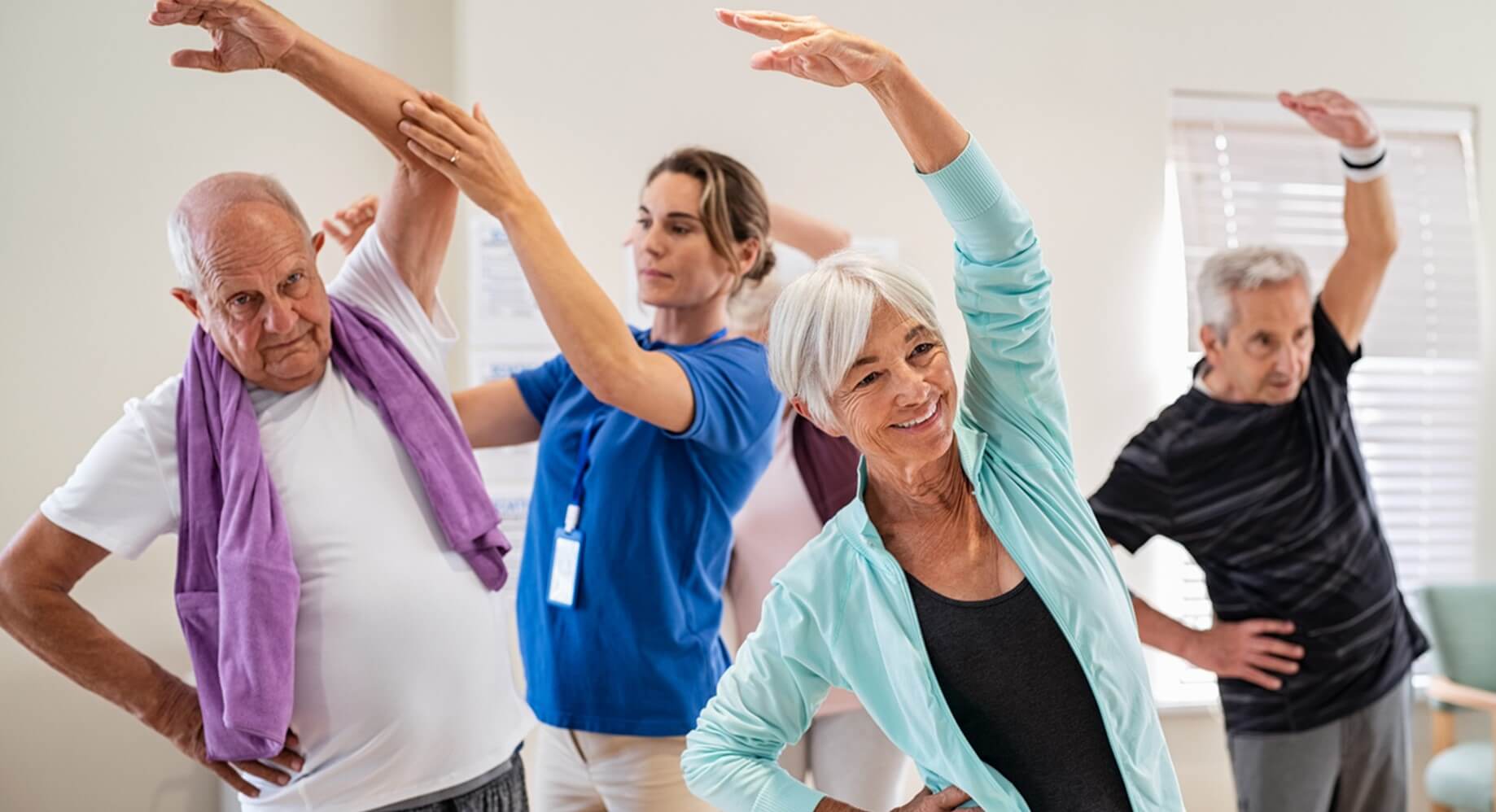The Biological, Psychological, and Social Factors of Aging

In the fascinating journey of life, aging is a process that’s rich in experiences and wisdom. However, in order to embrace maturity, it’s necessary to explore the dimensions that make up our development: the biology that sculpts our being, the psychology that shapes our mind, and the complex social interactions that define our environment.
Understanding the biological and psychological changes that occur in the body as we age allows us to implement self-care practices that promote both our physical and emotional well-being while preventing the diseases associated with aging. Meanwhile, addressing common social challenges, such as isolation, can help promote a better quality of life in older adults.
You may also like to read this article: Staying Younger Longer: How to Delay Aging
The science of aging: Biological factors of aging

Aging is a complex phenomenon that involves a series of biological changes at different levels. According to research published in the scientific journal PLOS Biology, there are certain mechanisms that can influence the rate of aging in a person, although there’s still no universal consensus on the factors that cause typical conditions that occur during old age.
For example, at the cellular level, shortening of telomeres (protective structures at the ends of chromosomes) can lead to decreased tissue function. Likewise, hormonal changes and a deficiency in DNA repair and protein synthesis all contribute to the accumulation of cellular damage and oxidative stress.
As old age arrives, the cardiovascular system undergoes a loss of arterial elasticity and an increase in vascular stiffness. In the nervous system, loss of neurons and changes in cognitive function occur. Meanwhile, the muscular and skeletal systems experience loss of mass and density, affecting a person’s strength and flexibility.
If you want to slow down the aging process and improve your healthy life span, some of the top longevity hacks recommended by health professionals include calorie restriction, regular exercise, and good hydration accompanied by a diet that’s rich in antioxidants.
The science of aging: The cognitive factors associated with aging
1. Cognitive decline
According to a study in the journal Neuroscience & Biobehavioral Reviews, aging is linked to significant cognitive decline. This is due, among multiple factors, to the fact that the hippocampus undergoes structural and functional changes in adulthood, which affects learning, memory, attention, and problem-solving skills.
Employing non-invasive strategies such as engaging in mentally stimulating activities, maintaining your social connections, and living a healthy lifestyle have been shown to counteract these changes. These approaches may serve as therapeutic possibilities to protect the brain against the effects of old age and the neurodegenerative processes that come with age.
2. Emotional well-being and resilience

As we age, the ability to manage our emotions and maintain a healthy psychological balance is essential. Many older adults show remarkable resilience and adaptability to life’s changes and challenges. However, some may experience feelings of loneliness, loss, or depression.
That’s why building and maintaining strong social bonds are crucial elements in counteracting isolation and providing an emotional support system. Additionally, self-care – which can be understood as healthy practices and dedication to rewarding activities – along with self-compassion play an essential role in aging happily.
2. Self-perception and identity in the aging process
How people perceive themselves and their role in society often changes with age. The transition to adulthood and then retirement, changes in physical abilities, and evolving family dynamics can all affect each individual’s identity and self-worth.
A positive self-perception as you age is linked to better health outcomes and a higher quality of life. That’s why promoting a society that values and respects older adults, and providing opportunities for continued growth, can improve seniors’ self-esteem.
You may like reading this article, too: Ultra-processed Foods Increase Cellular Aging
The impact of social changes on the lives of older adults
As we age, the social fabric of our lives also transforms, taking us into a territory that’s both complex and filled with opportunities. To begin with, family relationships and community networks become vital refuges, since they offer emotional support that builds bridges between generations.
Participation in groups of older adults – whether this be through community activities or family roles – is a true beacon that can help ward off feelings of loneliness and prevent social isolation as we age.
However, challenges also often arise in our social landscape as we age. Discrimination and stigma towards older people persist in some corners of society, affecting people’s self-esteem and limiting opportunities for full participation. In turn, the lack of accessibility in physical environments and the misperception of old age can create barriers when it comes to mobility and inclusion.
Understanding the changes that come with aging helps you live your best life
By embracing old age with the insight that the knowledge of what the aging process involves provides, we’re able to clear the path to truly comprehensive well-being. With the help of timely information, it’s possible for each chapter of our lives to be written with the ink of understanding, acceptance, and celebration of the emotional richness of life in order to allow us to fully enjoy each and every new day.
All cited sources were thoroughly reviewed by our team to ensure their quality, reliability, currency, and validity. The bibliography of this article was considered reliable and of academic or scientific accuracy.
- Bettio, L. E., Rajendran, L., & Gil-Mohapel, J. (2017). The effects of aging in the hippocampus and cognitive decline. Neuroscience & Biobehavioral Reviews, 79, 66-86. https://www.sciencedirect.com/science/article/abs/pii/S0149763416307667
- Bherer, L., Erickson, K. I., & Liu-Ambrose, T. (2013). A review of the effects of physical activity and exercise on cognitive and brain functions in older adults. Journal of Aging Research, 2013. https://www.hindawi.com/journals/jar/2013/657508/
- Courtin, E., & Knapp, M. (2017). Social isolation, loneliness and health in old age: a scoping review. Health & Social Care in the Community, 25(3), 799-812. https://onlinelibrary.wiley.com/doi/full/10.1111/hsc.12311
- Pitt, J. N., & Kaeberlein, M. (2015). Why is aging conserved and what can we do about it? PLOS Biology, 13(4), e1002131. https://journals.plos.org/plosbiology/article?id=10.1371/journal.pbio.1002131
This text is provided for informational purposes only and does not replace consultation with a professional. If in doubt, consult your specialist.








